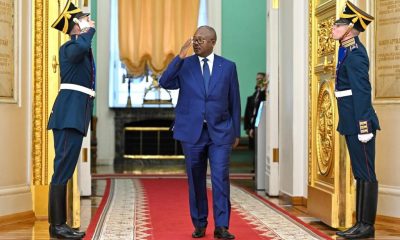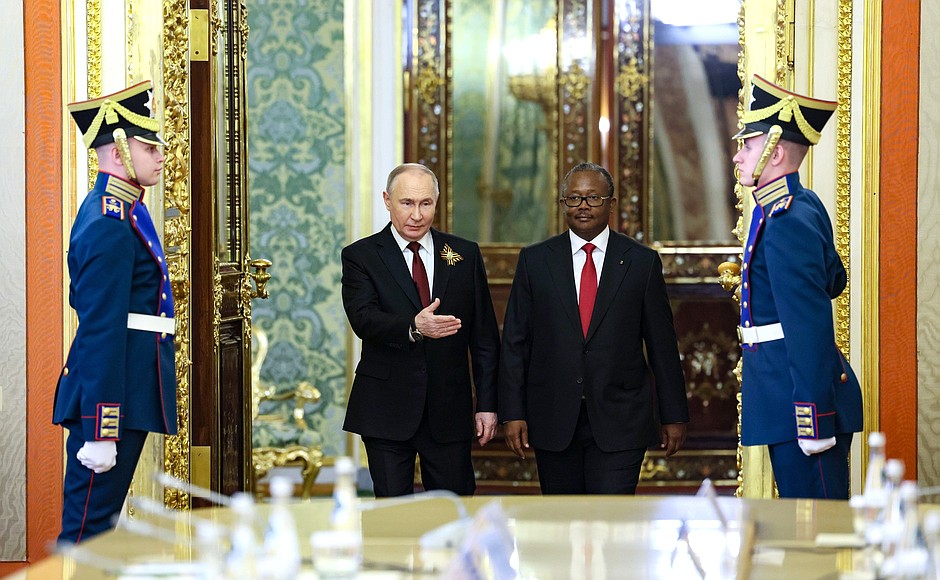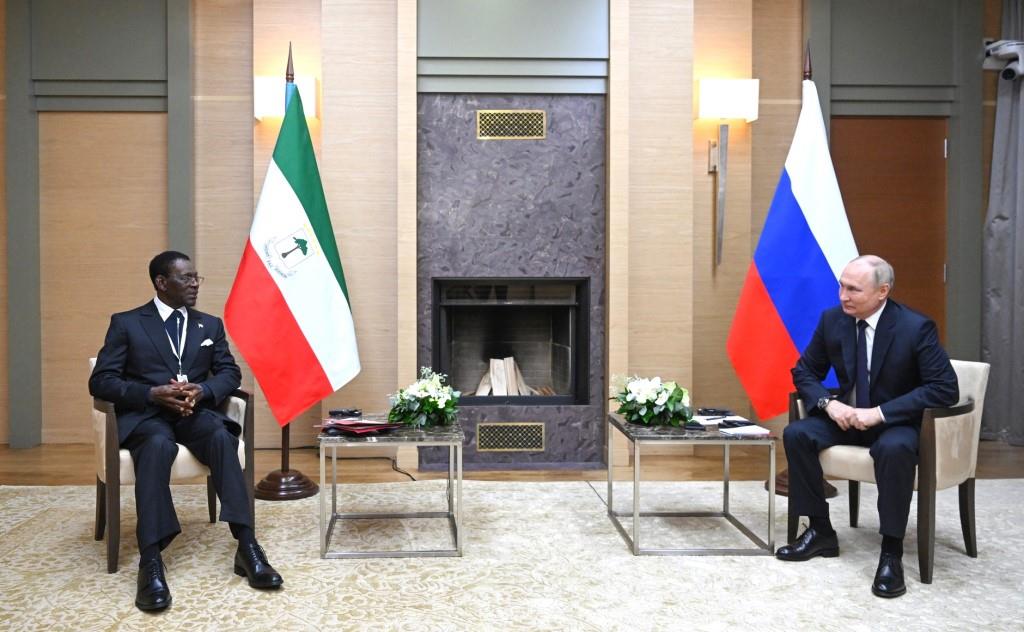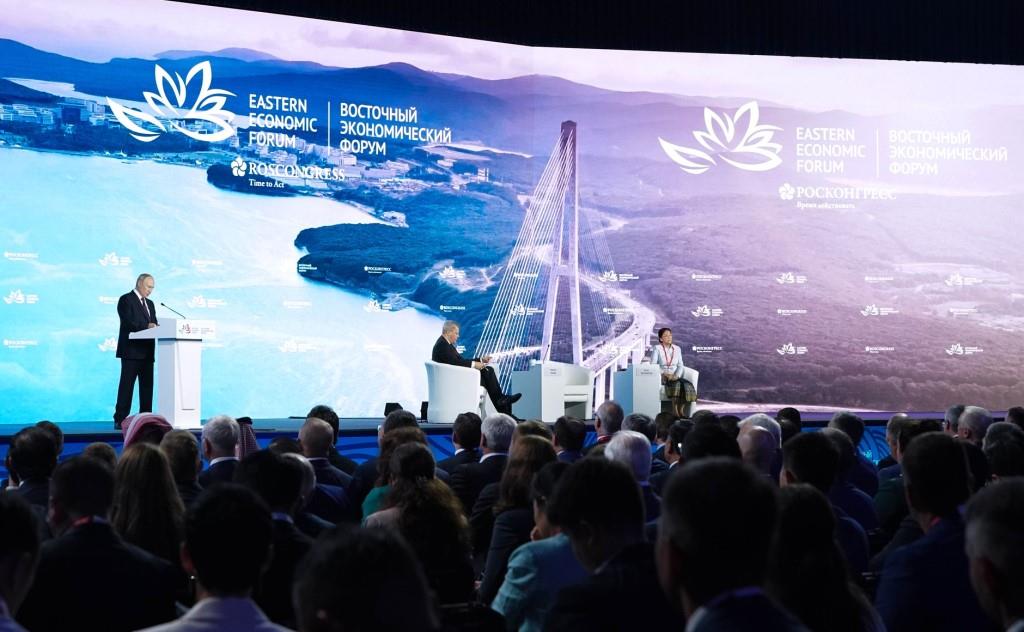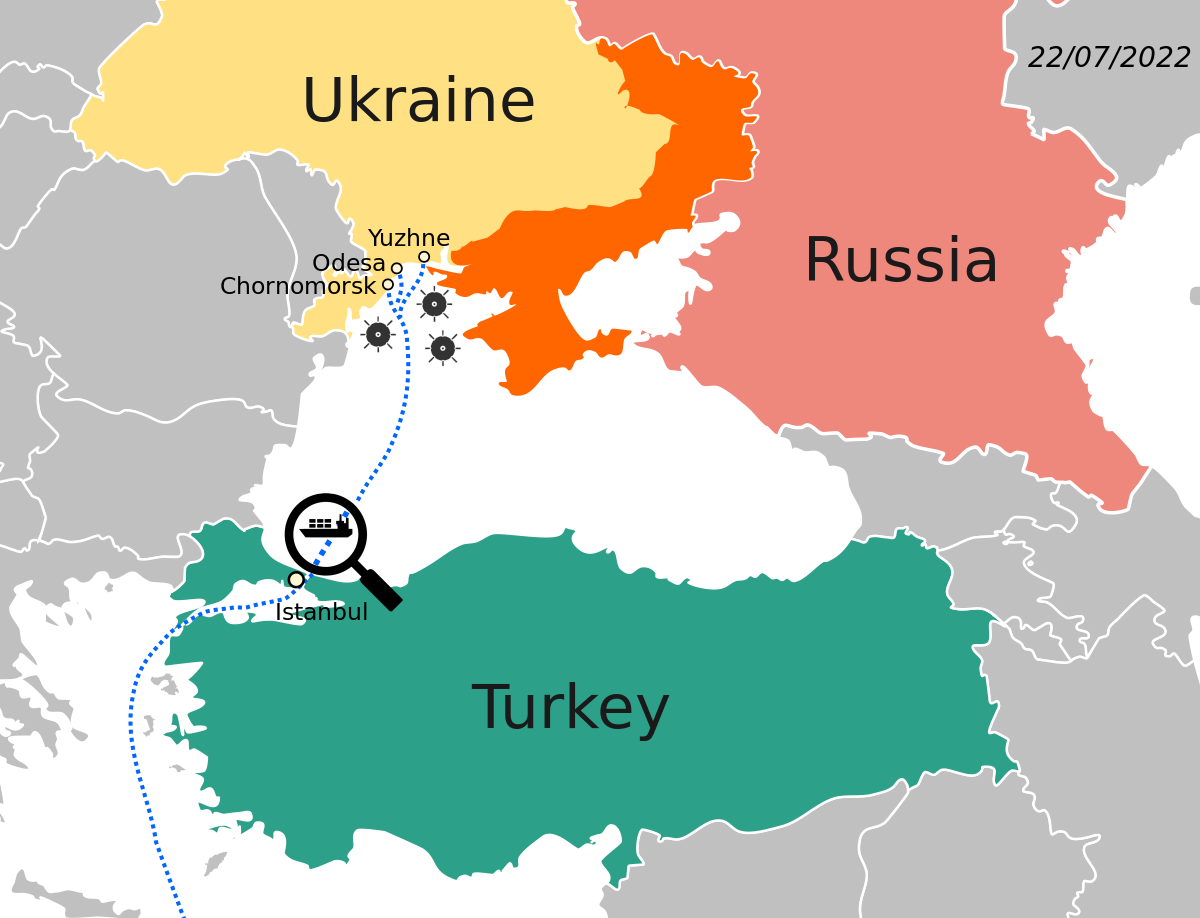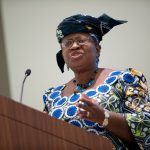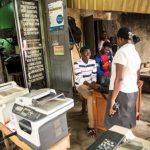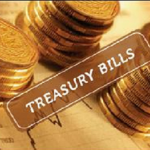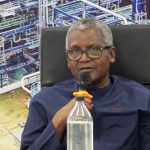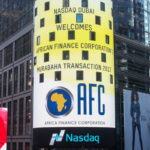World
Putin Glad With Expansion of Russian-Nigerian Ties, Tasks New Envoys
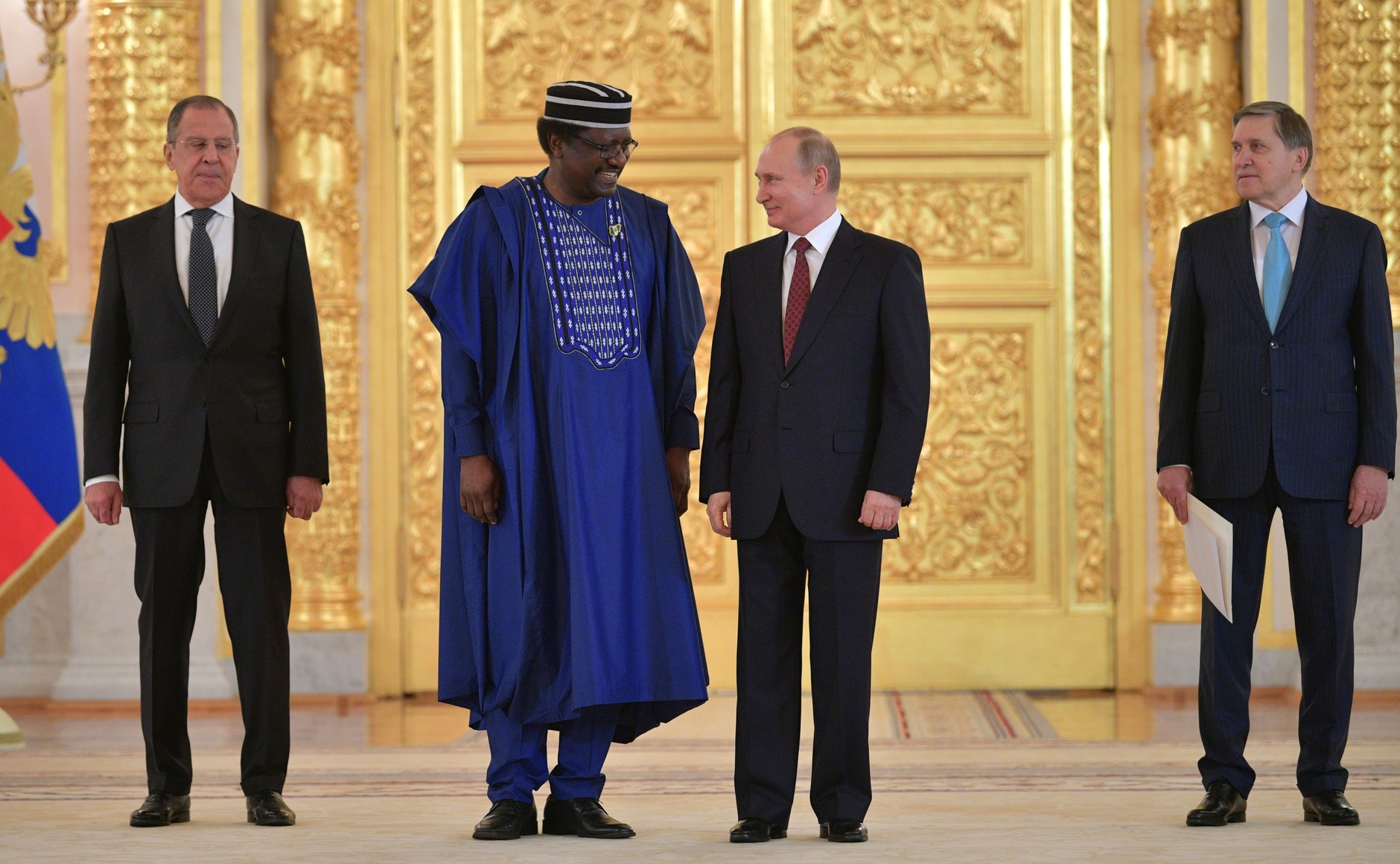
By Kester Kenn Klomegah
Russian President, Mr Vladimir Putin, has assertively reminded 17 newly arrived foreign envoys, including Nigerian ambassador to the country, Professor Steve Davies Ugba, to make efforts to facilitate the development of multifaceted relations with Russia in every possible way, strengthen political dialogue, boost trade and economic relations, deepen humanitarian and cultural ties.
“The role of diplomacy and diplomats are particularly important,” he explained and gave the assurance that Moscow was committed to constructive dialogue with its foreign partners and would unreservedly promote a positive agenda.
“For our part, we are ready to welcome your constructive initiatives, you can count on the support of Russian authorities, state institutions, business circles and the public,” Mr Putin said, addressing the foreign ambassadors in a special ceremony held in the Alexander Hall of the Grand Kremlin Palace.
The 17 newly appointed ambassadors are from Austria, Benin, Côte d’Ivoire, Cuba, Egypt, El Salvador, Ghana, Italy, Jordan, Nigeria, Montenegro, Republic of Congo, Saudi Arabia, South Korea, The Gambia, United Arab Emirates and Vietnam.
During the speech, Mr Putin strongly reminded them about the growing challenges and threats confronting the global community and urged them to play a pivotal role in ensuring sustainable development, global peace and stability.
“As for Russia, it will continue to consistently be committed to strengthening global and regional security and stability and fully comply with its international obligations, build constructive cooperation with partners based on respect relying on international legal norms and the United Nations Charter,” the Russian leader said.
According to Mr Putin, “diplomats are called upon to facilitate the joint search for answers to large-scale challenges and threats, such as terrorism, drug trafficking, organized crime, proliferation of weapons of mass destruction and climate change.”
In addition to supporting greater security, stability and delivering promptly on its international obligations, Putin also emphasized the readiness of Russia to continue boosting overall ties both at bilateral level and on the world stage with African countries. According to the longstanding tradition, the Russian leader said a few words about the interaction with the individual countries in the welcome speech.
Of particular importance, Mr Putin noted that Russia was interested in broadening ties with the Federal Republic of Nigeria.
“We very much appreciate our relations with Nigeria, an important partner for us on the African continent. We support the further expansion of mutually beneficial Russian-Nigerian ties, including cooperation on hydrocarbon extraction and aluminium production, as well as in the military-technical field,” he told the new Nigerian ambassador, Professor Steve Davies Ugba, who had arrived with an accumulated experience in corporate affairs and several years of academic teaching in the United States.
He went on to inform the gathering that the foundation for the cooperation between Russia and Ghana was laid over 60 years ago. “We have accumulated a great deal of experience in working together in both the trade and economic sphere and in politics. Currently, we are developing promising projects in the nuclear and oil industries, and we are discussing the prospects of supplying Ghana with Russian airplanes, helicopters and automobiles,” Mr Putin said.
Dr Akyaa Opoku Ware, Ghana’s ambassador to the Russian Federation, was one of those who presented credentials to Mr Putin. By profession, she is a qualified medical doctor from The Royal College of Surgeons in Dublin and was appointed as an ambassador to the Russian Federation and former Soviet republics by President Nana Addo Dankwa Akufo-Addo on September 13, 2017.
With regards to the Arab Republic of Egypt, Mr Putin offered a bit more saying that the strategic partnership with Egypt is being strengthened. In August, Russia and Egypt will mark the 75th anniversary of the establishment of diplomatic relations. Cooperation between Russia and Egypt is very active and includes the construction of the first nuclear power plant in Egypt, the establishment of a Russian industrial zone in the Port Said region, and the deepening of military and defense industry cooperation.
“I would also like to point out that regular flights between the capitals of the two countries have been resumed. We continue to work on resuming the rest of the flights,” he pointed out.
Last December, fruitful talks with President Abdel Fattah el-Sisi were held in Cairo, he noted, and added that they both maintained regular dialogue on a range of topics, including relevant international and regional issues because both countries have had close or similar positions. Quite recently, Mr Putin heartily congratulated the President of Egypt on his resounding victory at the recent elections.
According to diplomatic sources, Mr Ihab Talaat Nasr, the new Egyptian ambassador to Russia, has replaced Mr Mohammed al-Badri who completed his mission late October 2017. Previously, Ihab Nasr was the Deputy Minister of Foreign Affairs of Egypt responsible for European affairs.
The Gambia was in the Kremlin for the first time in the country’s history with the official opening of an embassy in Moscow. Madam Jainaba Bah, a Senior Member of the United Democratic Party (UDP), became the first resident ambassador of The Gambia in the Russian Federation.
“Our ties with the Republic of The Gambia are traditionally constructive. The Russian side is interested in expanding economic cooperation, including by increasing the supply of machinery and agricultural products to the republic. We will continue to expand the practice of training Gambian specialists at Russian universities,” the Russian leader explained.
Significantly, Mr Putin underscores the fact that friendly cooperation is maintained with the Republic of the Congo. Bilateral cooperation covers a number of major projects, including the construction of a 1,334 km oil pipeline. In February, Rosatom and the Science Ministry of the Congo signed a memorandum of understanding. Over 7,000 citizens of the Congo have received higher education at Soviet and Russian universities.
Talking about Republic of Côte d’Ivoire, he said that Russia’s relations with the Republic of Côte d’Ivoire would continue to develop in traditionally constructive spirit.
“We mainly interact with the Republic of Côte d’Ivoire in the trade and economic sphere. Russia supplies to this country chemical and food products and imports cocoa and its derivatives. As part of our humanitarian efforts, medicine and medical equipment from Russia are regularly sent to the Republic,” Mr Putin told the new ambassador, Mr Roger Gnanga, who had served in diplomatic post in Washington.
Currently, Côte d’Ivoire is a non-permanent member of the UN Security Council. Russia also stands ready to work with the Ivorian side at the UN.
Interestingly, Benin has frequently changed its ambassadors. Mr Noukpo Clement Kiki, the newly appointed Ambassador of the Republic of Benin to the Russian Federation, is a professional teacher and administrator for over 20 years. Quite recently, he had a short diplomatic stint in Canada and now transferred to Moscow.
Relations with Benin are developing in a constructive spirit. Russia cooperates on energy and transport. Russia exports food and chemical products. Over 2,500 citizens of Benin have graduated from Russian universities, according to Putin.
Whatever the possible shortfalls, Mr Putin optimistically expects that, with active participation of the 17 newly arrived ambassadors, these relations will develop dynamically for the mutual benefit of the peoples of their individual countries and Russia, and in the interests of international stability and security.
“I am confident that your time in Russia will allow you to better know our country and its rich history and culture, and will leave you with new unforgettable impressions,” Mr Putin, elected for another six-year presidential term and will be inaugurated into office on May 7, told the gathering.
In conclusion, Putin congratulated the new foreign envoys with the official beginning of an important and honourable diplomatic mission, and with the hope that their activities in the Russian Federation will be productive and promote the development of relations between the countries they represent and the Russian Federation.
This article was written by Kester Kenn Klomegah, an independent researcher writer on African affairs in the Russian Federation, but the headline was cast by Business Post Nigeria.
World
Tariff War Threatens Global Economy, US-China Goods Trade By 80%—WTO DG
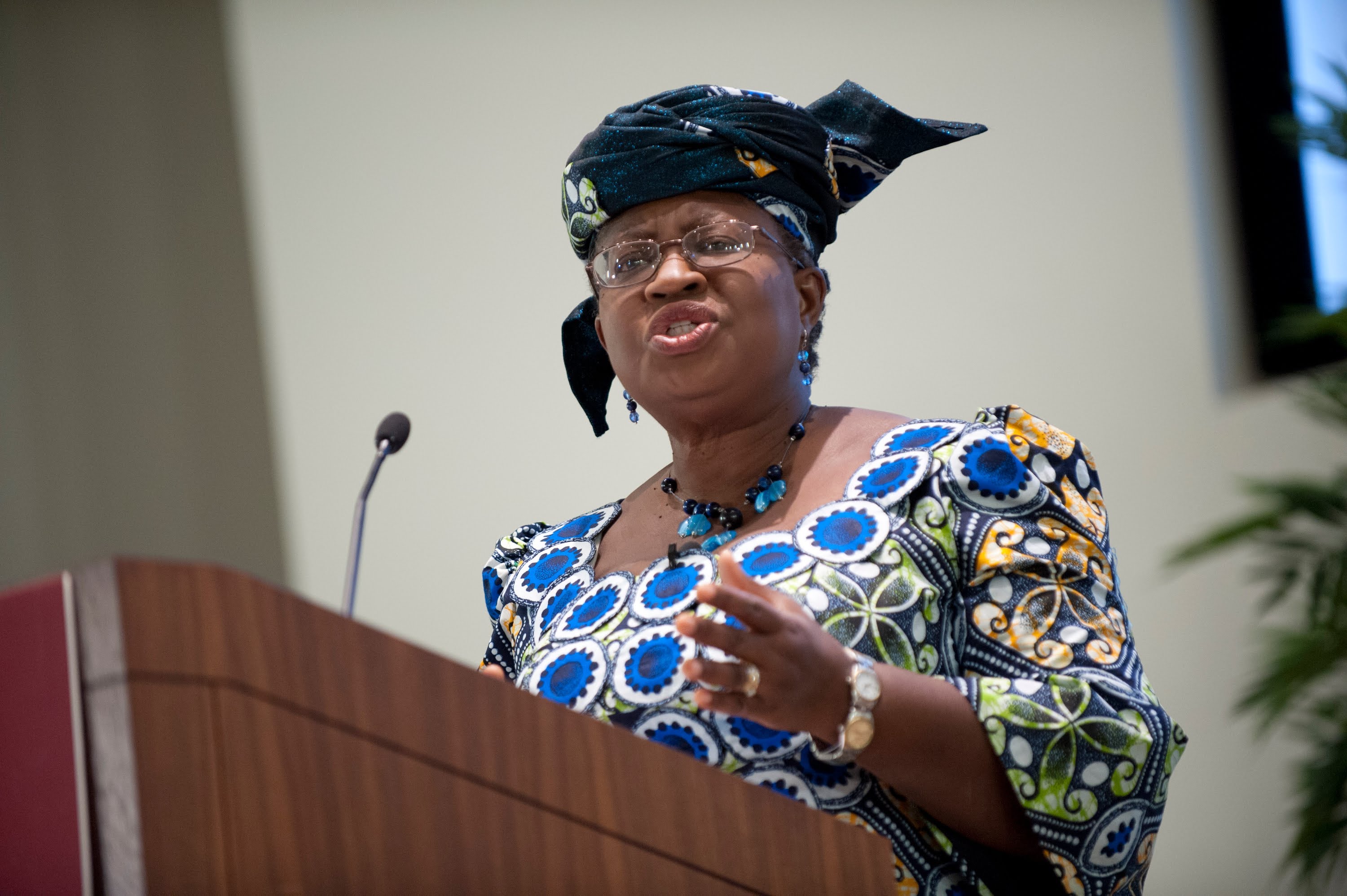
By Adedapo Adesanya
The Director General of the World Trade Organization (WTO), Mrs Ngozi Okonjo-Iweala, has said the US-China tariff war could reduce trade in goods between the two economic giants by 80 per cent and hurt the rest of the world economy.
President Donald Trump raised tariffs on China to 125 per cent on Wednesday as the world’s two largest economies fought over retaliatory levies.
The American President earlier ramped up duties on Chinese goods to 104 per cent, only to hike them further when China retaliated by raising tariffs on US imports to 84 per cent.
In a social media post announcing the moves, President Trump said China had been singled out for special treatment because of “the lack of respect that China has shown to the world’s markets.”
In her reaction to the development, the WTO DG said in a statement that, “The escalating trade tensions between the United States and China pose a significant risk of a sharp contraction in bilateral trade. Our preliminary projections suggest that merchandise trade between these two economies could decrease by as much as 80 per cent.”
She said the United States and China account for three per cent of world trade and warned that the conflict could “severely damage the global economic outlook”.
Even as he slapped further tariffs on China, Mr Trump paused higher tariffs on the rest of the world for 90 days, claiming that dozens of countries reached out for negotiations.
Mrs Okonjo-Iweala warned that the world economy risked breaking into two blocs, one centred around the United States and the other China.
“Of particular concern is the potential fragmentation of global trade along geopolitical lines. A division of the global economy into two blocs could lead to a long-term reduction in global real GDP by nearly seven percent,” she said.
She urged all WTO members “to address this challenge through cooperation and dialogue.”
“It is critical for the global community to work together to preserve the openness of the international trading system.”
“WTO members have agency to protect the open, rules-based trading system. The WTO serves as a vital platform for dialogue. Resolving these issues within a cooperative framework is essential,” she added.
World
AFC Tops $1bn Revenue in 2024 Financial Year
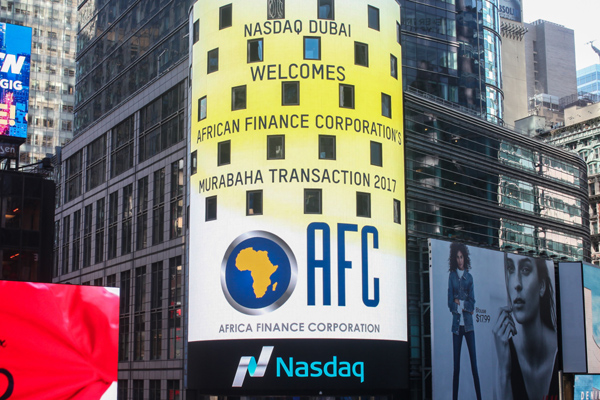
By Adedapo Adesanya
Africa Finance Corporation (AFC), the continent’s top infrastructure solutions provider, has announced its strongest financial performance to date, with total revenue for the year ended December 31, 2024 surpassing $ 1 billion for the first time in its history.
This record performance marks a significant milestone in AFC’s mission to close Africa’s infrastructure gap through scalable, de-risked investments that attract global capital and deliver tangible development outcomes.
The corporation posted a 22.8 per cent increase in total revenue to US$1.1 billion and a 22.3 per cent rise in total comprehensive income to $400 million, up from $327 million in 2023.
AFC’s earnings growth was driven by improved asset yields, prudent cost-of-funds management and sustained traction in advisory mandates.
Further significant financial highlights include net interest income up 42.5 per cent to $ 613.6 million; fee and commission income rose to $109 million, the highest in over five years; operating income climbed 42.7 per cent to $709.7 million; total assets reached a record $14.4 billion, a 16.7 per cent year-on-year increase; liquidity coverage ratio strengthened to 194 per cent, providing over 34 months of cover; and cost-to-income ratio improved to 17.3 per cent from 19.6 per cent in 2023.
According to a statement, AFC said throughout 2024 it continued to scale its impact by mobilising capital for landmark projects across energy, transport, and natural resources.
These included the Lobito Corridor – a cross-border railway development spanning Angola, the Democratic Republic of Congo (DRC), and Zambia. AFC led the initiative to secure a concession agreement within one year of the initial Memorandum of Understanding (MoU), an unprecedented achievement for a project of its scale. In the DRC, AFC also invested $150 million in the Kamoa-Kakula Copper Complex, Africa’s largest copper producer and one of the most sustainable globally, thanks to its high-grade ore and renewable-powered smelter.
Other milestones transactions included financing support for the commissioning of the Dangote Refinery, the largest in Africa, and continued progress on AFC-backed Infinity Power Holding’s 10 GW clean energy ambition, with power purchase agreements secured in Egypt and South Africa.
AFC also invested in the 15GW Xlinks Morocco-UK Power Project, providing $14.1 million to support early-stage development of a transcontinental renewable energy pipeline between North Africa and Europe.
AFC strengthened its capital base and expanded its investor network through several landmark funding initiatives. These included a $ 1.16 billion syndicated loan – the largest in its history, a $500 million perpetual hybrid bond issue, and the successful execution of Nigeria’s first-ever domestic dollar bond, which raised $900 million at 180 per cent oversubscription.
AFC also returned to the Islamic finance market after eight years, closing a $400 million Shariah-compliant facility.
The year also saw strong momentum in equity mobilisation, with $181.8 million in new capital raised from ten institutional investors. These included Turk Eximbank – AFC’s first non-African sovereign shareholder – the Arab Bank for Economic Development in Africa (BADEA), and several major pension funds spanning Cameroon, Seychelles, Mauritius, and South Africa. Ratings agencies affirmed AFC’s robust credit profile, with AAA ratings from S&P Global (China) and China Chengxin International, and a stable A3 Outlook from Moody’s.
Speaking on the result, Ms Samaila Zubairu, President & CEO of AFC said, “These results send a clear message that strategic investment in African infrastructure creates lasting value for both beneficiaries and investors.”
“In 2024, we exceeded the billion-dollar revenue mark, delivered game-changing projects, and reinforced our financial resilience—demonstrating the scalability of our unique model that blends purpose with performance to accelerate Africa’s economic transformation,” she added.
World
Swedfund Pumps €26m into AfricInvest’s FIVE
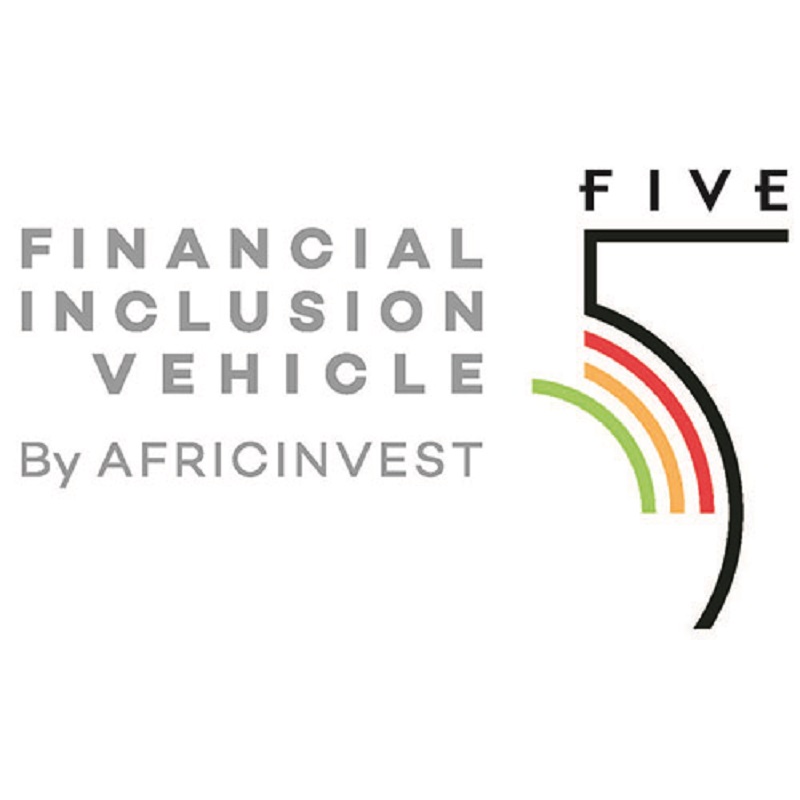
By Modupe Gbadeyanka
The Financial Inclusion Vehicle (FIVE) of AfricInvest has received the injection of €26 million from Swedfund to boost access to financial services in Africa.
About a fifth of the African population has access to formal banking services. Limited access to finance restricts entrepreneurship, job creation, and the ability to absorb economic shocks.
Swedfund’s investment addresses this gap by supporting financial institutions that are expanding outreach and developing inclusive financial products, especially through new technology and digital solutions, particularly with AfricInvest’s FIVE, a platform designed to support financial institutions across Africa.
The investment aims to increase access to financial services for underserved individuals and small businesses, with a focus on digital innovation, economic empowerment and inclusion.
Through FIVE, Swedfund will strengthen the capital base of select financial institutions across Africa, enabling them to grow and reach more clients.
The investment also supports FIVE’s commitment to gender equality and women’s empowerment, creating positive change within its portfolio companies and communities.
By investing in a mix of traditional and digital-first financial service providers, including banks, insurers, and fintechs, Swedfund aims to catalyse more inclusive financial ecosystems, driving job creation and economic growth across the continent.
A Senior Investment Manager at Swedfund, Mr Jakob Larsson, while commenting on the fresh injection, said, “Our investment in FIVE further strengthens our engagement to improve access to banking and other financial services in underserved communities.
“This in turn spurs job creation and growth. We are also able to strengthen financial institutions and the development of innovative financial services.”
-

 Feature/OPED5 years ago
Feature/OPED5 years agoDavos was Different this year
-
Travel/Tourism9 years ago
Lagos Seals Western Lodge Hotel In Ikorodu
-

 Showbiz2 years ago
Showbiz2 years agoEstranged Lover Releases Videos of Empress Njamah Bathing
-

 Banking7 years ago
Banking7 years agoSort Codes of GTBank Branches in Nigeria
-

 Economy2 years ago
Economy2 years agoSubsidy Removal: CNG at N130 Per Litre Cheaper Than Petrol—IPMAN
-

 Banking2 years ago
Banking2 years agoFirst Bank Announces Planned Downtime
-

 Sports2 years ago
Sports2 years agoHighest Paid Nigerian Footballer – How Much Do Nigerian Footballers Earn
-

 Technology4 years ago
Technology4 years agoHow To Link Your MTN, Airtel, Glo, 9mobile Lines to NIN



